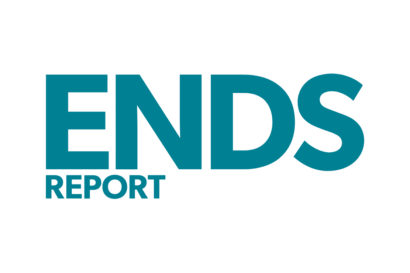AG INSIGHT | 08/08/2017
The Natural Capital Protocol: one year later

We know that the implementation of the Protocol is still in relative infancy, but the momentum behind it has been considerable, and in its first year, already it has become the standard approach for businesses looking to understand their impacts and dependencies on natural capital, says Mark Gough, Executive Director at the Natural Capital Coalition.
The Natural Capital Coalition is based on the theory that no individual organisation will solve the enormous problems we face by itself. It is only by working together that we will find the solutions we need. As a project hosted by the Institute of Chartered Accountants in England and Wales, the Natural Capital Coalition is a collaboration between over 260 global partners, and provides a platform for businesses, financial institutions, governments, scientists and academics, standard setters, associations, auditors and conservation bodies to come together to standardise approaches to natural capital assessment in global business.
The Coalition’s first major project was to harmonise the many existing approaches to natural capital into a single standardised global framework. This Natural Capital Protocol was published in July 2016, and has been incredibly well received in the year since its release. Thousands of businesses are now looking to benefit from a better understanding of their relationships with the natural world.
One year later
A year on from the launch of the Protocol, we’re beginning to see how the Protocol is being applied by leading businesses. A selection of case studies from Jaguar Land Rover, Skanska, Roche, AkzoNobel, Novartis, Yorkshire Water and Dow have recently been made publically available on the Natural Capital Hub, and provide a snapshot of the numerous different ways that the Protocol can add value to business across different sectors, sizes and operational geographies.
The Protocol was developed by a core team of 38 organisations, who came together to produce a public good, available under a creative commons licence, enabling free distribution. Over 450 organisations contributed to the Protocol’s development over the two-year project. This collaborative approach has meant that governments, conservation bodies, associations, businesses and consultants are all promoting and supporting the Protocol’s application – hence the considerable uptake.
Policy implications
While the Protocol is geared towards use by businesses, there is also an urgent need to engage directly with governments and policy makers.
We saw some progress in this respect towards the end of 2016, when, in preparation for the 13th Meeting of the Conference of the Parties to the UN Convention on Biological Diversity in Mexico, the Council of the European Union called on the business sector to use the Natural Capital Protocol to increase its involvement in, and contribution to, achieving the Aichi Biodiversity Targets and the biodiversity-related SDGs.
In 2017, the Coalition is taking a more active role in addressing the role of governments and policy makers in promoting adoption of the Protocol, and in nurturing an enabling environment in their respective countries.
We are now working with the European Commission and the Dutch Government to develop a platform for supportive governments to come together to support adoption of the Protocol. So far, over sixty governments (with representation in every major geography) have expressed interest in this programme.
We know that the implementation of the Protocol is still in relative infancy, but the momentum behind it has been considerable, and in its first year, already it has become the standard approach for businesses looking to understand their impacts and dependencies on natural capital.
This article has been reprinted, in part, from ‘The Capitals Approach’, written by Mark Gough Executive Director, Natural Capital Coalition and Richard Spencer, Head of Sustainability, Institute of Chartered Accountants in England and Wales for UNA-UK.
Mark Gough is the Executive Director of the Natural Capital Coalition, and led the collaboration that delivered the Natural Capital Protocol, a standardized global framework for including natural capital in decision-making.
Mark previously worked for The Crown Estate, helping to develop its integrated vision and approach to value measurement. Prior to this he was the Global Environmental Manager for the information company, Reed Elsevier. Mark is a Director of the Aldersgate Group, which brings together business, politics and civil society to drive action for a sustainable economy, and has sat on a number of national and international committees, including the Steering Committee of the United Nations CEO Water Mandate and the Board of the Alliance for Water Stewardship.



